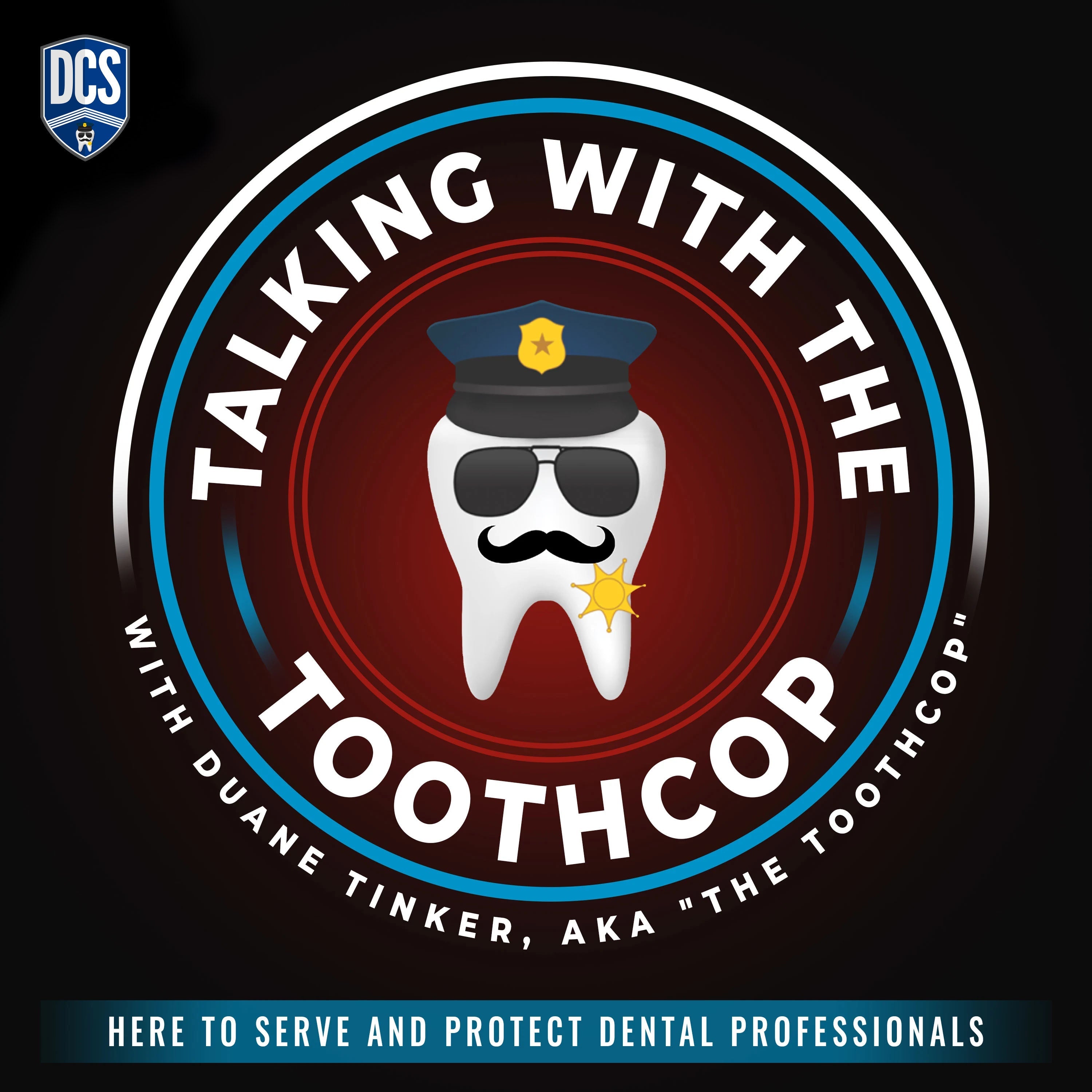Without question, the Covid pandemic had a large impact on the healthcare field. It highlighted monstrous changes that needed to occur in the infection control space. MCS put its resources into investigating standards of care in infection control.
MCS came out with some new technologies that will transform the world of infection control. Paul Saueressig outlines the solutions they’ve created and how they can benefit your dental practice in this episode of Talking with the Toothcop. Do NOT miss this one!
Outline of This Episode
- [2:12] Learn more about MCS Infection Control Solutions
- [8:01] Solution #1: Protective Coating Solutions
- [15:03] Solution #2: Rapid Testing Solutions
- [26:08] Two options for healthcare facilities
- [35:53] The problem with Healthcare-Associated Infections (HAIs)
- [39:56] Providing long-term proactive solutions for the healthcare space
- [41:09] How to get more information about MCS infection control solutions
Learn more about MCS and their infection control solutions
MCS was originally a durable medical equipment company in Plano, Texas. A small piece of their business was short-term infection control solutions for the facilities they provided equipment to. The goal was to make sure the products they sold to these facilities were cleaned and sterilized after delivery. But once that equipment was installed, it was the facility's responsibility to keep it that way.
After Covid hit, they started getting calls from nursing homes, asking for long-term infection control solutions. It sparked an idea. There had to be solutions for facilities like this. So MCS spent the next year investigating new technologies that could be utilized within the infection control space.
Solution #1: Protective Coating Solutions
Their first solution was a protective coating. Imagine taking a CaviWipe™ and using it on a surface, but when you do so, it would protect the surface for 90 days. After 9 months of development, they created a coating that could be applied that created an electrostatically charged surface.
These coating solutions can be sprayed throughout an entire operatory—anything from computer screens to lights to operating tables. The particles in the spray look for surfaces to bond to. Once it bonds, the coating provides 360-degree electrostatically-charged protection. What does that mean?
Every lifeform carries a positive or negative charge. When you apply this surface, it creates a positive electrostatic charge that lasts up to 90 days. A strain of bacteria or virus typically has a negative electrical charge. So when they land on positively charged surfaces, they die.
They sprayed the coatings on various surfaces in their lab, dropped E. coli on the surface, and took x-ray photos. Within seconds, that strain of E. coli completely broke up. After 10 months of clinical testing, they acquired EPA and FDA approval.
Solution #2: Rapid Testing Solutions
There is no standard of care for testing the effectiveness of disinfectants. So MCS introduced rapid testing technology. If there was a rapid test for Covid, why couldn’t there be one for healthcare facilities?
Partnering with Hygiena, they created three rapid tests:
- Adenosine triphosphate (ATP) Testing
- Microbial Activity Testing
- Viral Activity Testing
They can now test and get results for contamination within 30 seconds. Once they established these three types of swabs, they also introduced a water-testing swab (for the dental space). Dental operatories have to maintain low levels of colony forming units (CFUs) in their water lines. Hygiena created a swab to allow them to test CFU counts and provide results within 30 seconds.
They can provide a dental office with tests for everything they need to know to keep their environment safe and clean.
The two options for healthcare facilities
We need to know how safe and clean healthcare facilities are. Using these rapid testing devices, Paul can produce OSHA-compliant reporting that allows them to see their ATP count levels, surface microbial count levels, and waterline CFU levels. So at least dental offices can know where they aren’t doing well and what can be done to improve.
If a practice wants to sign up for the full program, MCS will come in and apply the protective coating solutions to every surface in the office. Those solutions are reapplied every 90 days. They also do tests before application and post-application, providing the practice with testing results in 24 hours.
The problem with Healthcare-Associated Infections (HAIs)
Healthcare-Associated Infections (HAIs) cost the medical industry between 28–35 billion dollars a year. That’s why infection prevention and control are inherently important in medical facilities. The dental industry doesn’t monitor HAIs. But with MCS’s technology, you don’t have to study HAIs—you can get out in front of it.
Their program has been used in 100 offices for over a year. Before their services, 87% of the offices had some trace of microbial contamination. For the offices that use their full program, they have found zero traces of microbial contamination after the first treatment.
MCS offers a better, cost-effective, conclusive solution than anything practices could have been using before covid. So a practice can safely say they are providing the cleanest, healthiest environment they can for their staff and patients.
Resources & People Mentioned
Connect With Duane
- https://www.dentalcompliance.com/
- toothcop@dentalcompliance.com
- On Facebook
- On Twitter
- On LinkedIn
- On Youtube


